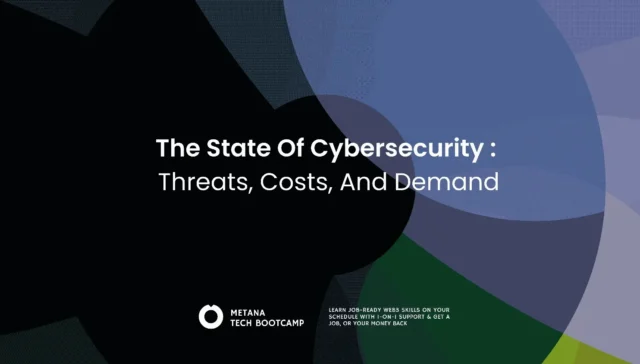Web3 promises a democratized financial landscape, but a shadow lurks within its decentralized exchanges (DEXes) – Frontrunning. This exploitative practice leverages knowledge of upcoming transactions to gain an unfair advantage, jeopardizing the very idea of a level playing field. Let’s dive into the mechanics of frontrunning and how it disrupts the Web3 ecosystem.
The Insider Advantage (…Except It’s Not Insider Information)
Imagine a user on a DEX placing a large buy order for a specific token. Unbeknownst to them, a frontrunner lurks in the background. By monitoring the mempool (a temporary pool of pending transactions), the frontrunner detects this upcoming buy order. Here’s how they exploit this knowledge:
- Riding the Coattails: The frontrunner quickly places a smaller buy order for the same token just before the original user’s transaction. This drives the price up slightly due to increased demand.
- Selling at a Profit: Once the original user’s larger buy order executes, the price jumps further. The frontrunner then quickly sells their smaller purchase at the inflated price, pocketing the difference.
Real-World Losses and Ethical Quandaries

Frontrunning is a significant concern in Web3, leading to:
- Reduced User Confidence: When users suspect their transactions are being frontrun, it erodes trust in the fairness and efficiency of DEXes.
- Flashloan Manipulation: Sophisticated attackers can leverage flashloans (borrowing a large sum instantly and repaying it within the same transaction) to manipulate markets and exacerbate frontrunning opportunities.
Example of Frontrunning in Code
To understand how frontrunning works, let’s look at a simplified example using Solidity, the programming language for Ethereum smart contracts. Here’s a basic smart contract that could be susceptible to frontrunning:
pragma solidity ^0.8.0;
contract VulnerableExchange {
mapping(address => uint256) public balances;
uint256 public tokenPrice = 1 ether;
event Purchase(address indexed buyer, uint256 amount);
function buyTokens() public payable {
require(msg.value > 0, "Send ETH to buy tokens");
uint256 amountToBuy = msg.value / tokenPrice;
balances[msg.sender] += amountToBuy;
emit Purchase(msg.sender, amountToBuy);
}
function sellTokens(uint256 amount) public {
require(balances[msg.sender] >= amount, "Not enough tokens");
uint256 etherAmount = amount * tokenPrice;
balances[msg.sender] -= amount;
payable(msg.sender).transfer(etherAmount);
}
}
In this contract, users can buy and sell tokens at a fixed price. A frontrunner can monitor the mempool for a large buy order and quickly place their own buy order just before the large one, driving up the price for their benefit.
The Quest for a Fairer Marketplace
Web3 developers and DEX operators can combat frontrunning through various strategies:
- Mempool Privacy: Explore techniques that obscure transaction details within the mempool, making it harder for frontrunners to identify lucrative opportunities.
- Block Time Optimization: Increase block times on a DEX, reducing the window of opportunity for frontrunners to react and exploit upcoming transactions.
- Decentralized Matching Engines: Implement order book designs that prioritize fairness over speed, making it more challenging to predict and manipulate transaction outcomes.
Combating Frontrunning
Developers can employ various techniques to reduce or eliminate frontrunning. Here are a few examples:
- Commit-Reveal Schemes: In a commit-reveal scheme, users first submit a hashed version of their transaction, and later reveal the actual transaction. This can prevent frontrunners from seeing the transaction details until it’s too late to exploit them.
pragma solidity ^0.8.0;
contract CommitRevealExchange {
mapping(address => uint256) public balances;
uint256 public tokenPrice = 1 ether;
struct Commit {
bytes32 hash;
uint256 value;
}
mapping(address => Commit) public commits;
event CommitMade(address indexed user, bytes32 hash);
event Purchase(address indexed buyer, uint256 amount);
function commitToBuy(bytes32 hash) public payable {
require(msg.value > 0, "Send ETH to commit");
commits[msg.sender] = Commit(hash, msg.value);
emit CommitMade(msg.sender, hash);
}
function revealAndBuy(string memory secret) public {
Commit memory userCommit = commits[msg.sender];
require(userCommit.value > 0, "No commit found");
bytes32 hash = keccak256(abi.encodePacked(secret));
require(hash == userCommit.hash, "Hash mismatch");
uint256 amountToBuy = userCommit.value / tokenPrice;
balances[msg.sender] += amountToBuy;
delete commits[msg.sender];
emit Purchase(msg.sender, amountToBuy);
}
}- Batch Auctions: Batch auctions can process multiple transactions together, ensuring that no single transaction can be frontrun.
pragma solidity ^0.8.0;
contract BatchAuctionExchange {
struct Order {
address user;
uint256 value;
}
Order[] public orders;
uint256 public auctionEndTime;
bool public auctionEnded;
uint256 public tokenPrice = 1 ether;
event OrderPlaced(address indexed user, uint256 value);
event AuctionEnded(uint256 finalPrice);
constructor(uint256 _auctionDuration) {
auctionEndTime = block.timestamp + _auctionDuration;
}
function placeOrder() public payable {
require(block.timestamp < auctionEndTime, "Auction ended");
require(msg.value > 0, "Send ETH to place order");
orders.push(Order(msg.sender, msg.value));
emit OrderPlaced(msg.sender, msg.value);
}
function endAuction() public {
require(block.timestamp >= auctionEndTime, "Auction not yet ended");
require(!auctionEnded, "Auction already ended");
auctionEnded = true;
uint256 totalValue = 0;
for (uint256 i = 0; i < orders.length; i++) {
totalValue += orders[i].value;
}
uint256 finalPrice = totalValue / orders.length;
emit AuctionEnded(finalPrice);
for (uint256 i = 0; i < orders.length; i++) {
uint256 amountToBuy = orders[i].value / finalPrice;
payable(orders[i].user).transfer(amountToBuy * tokenPrice);
}
}
}The Role of Flashbots
One innovative approach to combating frontrunning is Flashbots. Flashbots is a research and development organization working on mitigating the negative externalities of current MEV (Maximal Extractable Value) extraction techniques and avoiding the existential risks MEV could cause to state-rich blockchains like Ethereum.
Flashbots operate as a transparent, permissionless, and fair ecosystem where users can submit their transactions directly to miners. This method bypasses the public mempool, thus reducing the chance of frontrunning.
Conclusion
Frontrunning poses a significant challenge in the Web3 landscape, undermining the principles of fairness and decentralization. However, with innovative strategies like commit-reveal schemes, batch auctions, and solutions like Flashbots, the community can mitigate these risks and work towards a more equitable ecosystem. By staying vigilant and continuously evolving, Web3 developers and DEX operators can preserve the integrity of decentralized finance and protect users from exploitative practices.
FAQs:
What is frontrunning in the context of Web3 DEXes?
- Frontrunning is when someone exploits knowledge of pending transactions to place their own transactions ahead, gaining unfair advantage.
How does frontrunning affect users of decentralized exchanges (DEXes)?
- It leads to unfair trading practices, causing financial losses and eroding trust in the decentralized exchange ecosystem.
What techniques can be used to combat frontrunning in Web3 DEXes?
- Techniques include transaction encryption, time-locked transactions, randomization, and implementing fair ordering protocols.
What is a time-locked transaction?
- A time-locked transaction can only be executed after a certain period, preventing immediate exploitation by frontrunners.
How does transaction encryption help in preventing frontrunning?
- Transaction encryption hides transaction details until they are mined, making it difficult for frontrunners to gain actionable information.
What are decentralized exchanges (DEXes)?
- DEXes are platforms for trading cryptocurrencies without intermediaries, allowing peer-to-peer transactions directly on the blockchain.
Why is fairness important in decentralized trading?
- Fairness ensures equal opportunities for all traders, fostering trust and maintaining the integrity of the decentralized exchange.
What are fair ordering protocols?
- Fair ordering protocols ensure that transactions are processed in a fair and transparent manner, preventing manipulation by frontrunners.
How can randomization help in combating frontrunning?
- Randomizing transaction ordering makes it harder for frontrunners to predict and exploit transaction patterns.
What role do smart contracts play in securing DEXes?
- Smart contracts automate and enforce rules on DEXes, helping to implement anti-frontrunning measures and maintain a secure trading environment.







